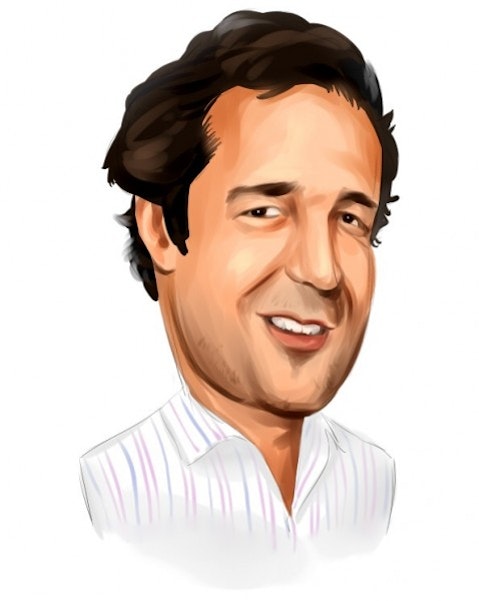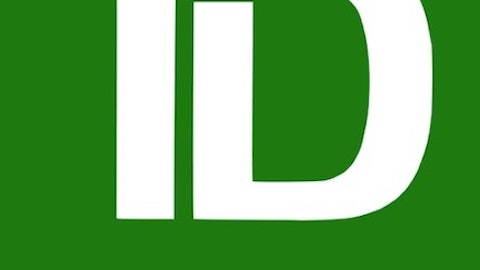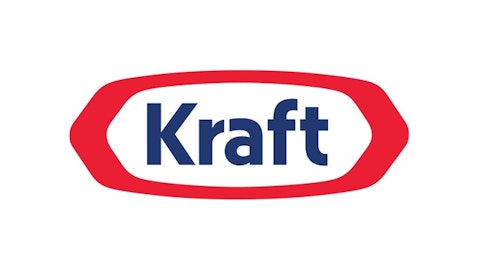Goldman Sachs Group, Inc. (NYSE:GS) has outperformed the S&P 500 so far this year, thanks at least in part to a quarterly report which beat analyst expectations. In the fourth quarter of 2012, earnings were more than double what they were a year earlier and earnings per share came in about 50% above analyst expectations. Non-interest revenue grew by 28% in the year as a whole (led by growth in market making activities), offsetting a decline in net interest income.
2012 earnings per share were $14.13, placing Goldman Sachs Group, Inc. (NYSE:GS) at a valuation of 10 times trailing earnings. That multiple would generally place a stock in value territory as long as its business was sustainable. Even if Goldman’s earnings growth last year was generally recovering from a poor 2011, as long as it can continue to generate a similar level of earnings per share it could be attractive at this price. Wall Street analysts expect just above $15 in EPS for 2014, making for a forward P/E of 10 as well. Goldman Sachs Group, Inc. (NYSE:GS) also trades right about at the book value of its equity; a bull would argue that the company’s strong brand among its customers merits a premium, while bears might argue that financials in general have overstated book values. Given the company’s success in generating income from these assets- as seen by the low earnings multiple- we would doubt that book values are very inflated.
We track quarterly 13F filings from hedge funds and other notable investors, using this information to develop investing strategies (for example, we have found that the most popular small cap stocks among hedge funds generate an average excess return of 18 percentage points per year). We can also use our database to see which filers had large positions in Goldman Sachs Group, Inc. (NYSE:GS) as of the end of December. We see that Boykin Curry’s Eagle Capital Management, even after cutting its stake in the investment bank, owned 2.6 million shares (find Eagle’s favorite stocks). Orbis Investment Management, managed by William Gray, was buying Goldman and reported ownership of 1.6 million shares (see Orbis’s stock picks).
Morgan Stanley (NYSE:MS) is Goldman’s closest peer in the sense of being a pure-play investment bank. Morgan Stanley trades at a discount: specifically, the forward earnings multiple is only 8 and the P/B ratio is 0.7 (reflecting that the market cap is significantly below the book value of Morgan Stanley’s equity). The bank did not have as good a year in 2012 as Goldman did, however, with trading revenues, commissions, and fees powering a 32% decrease in non-interest revenue. As such the stock is cheaper, but the business has been performing poorly.
We can also compare Goldman Sachs Group, Inc. (NYSE:GS) to megabanks such as JPMorgan Chase & Co. (NYSE:JPM), Wells Fargo & Co (NYSE:WFC), and Citigroup Inc. (NYSE:C) with both retail and investment banking operations. The bank is well in line with where JPMorgan Chase and Wells Fargo are valued in terms of those companies’ trailing earnings, and both of those peers experienced an increase in net income of over 20% in their most recent quarter compared to the same period in the previous year. Wells Fargo does carry a fairly large premium to book value (the P/B ratio is 1.3) but similarly to Goldman the company appears to be doing quite well at monetizing these assets. JPMorgan Chase and Wells Fargo also pay dividend yields in the range of 3%. Citi, meanwhile, is more dependent on an improvement in its financials. It did grow its earnings nicely in its most recent quarterly report compared to Q4 2011, and analysts are expecting good performance in the next couple years resulting in a forward P/E of 8, but we think it might be worth sticking with the more dependable banks.
We aren’t sure a pure-play investment bank is necessarily a better investment, so we’d be quite interested in looking more closely at JPMorgan Chase and Wells Fargo. In terms of Goldman Sachs versus Morgan Stanley, there is a gap in valuation but Goldman has been a considerably stronger performer recently. Since the stock looks cheap on an absolute basis, we think it makes a better prospect for further research until the relative difference between the two banks’ growth rates changes.
Disclosure: I own no shares of any stocks mentioned in this article.


